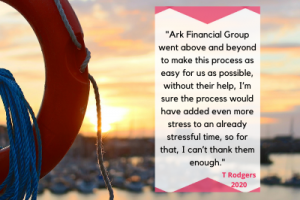Wellbeing: a broad spectrum of human experiences normally associated with health, happiness and contentment. But too often the financial aspect of wellness is forgotten. Yet, financial stress can make us think and act in a variety of ways effecting happiness, relationships, health, and other poor choices. So, what can New Zealanders do to improve their financial wellbeing?
A study organised by the Financial Services Council, in 2020, highlighted how getting professional financial advice helped improved New Zealander’s confidence, knowledge and overall wellbeing. New Zealanders who did seek professional advice were able to weather difficult and unanticipated events and that these New Zealanders travelled more, saved more and overall had more. The study found that the average Kiwisaver balance was 52% higher when receiving advice and, also more likely to have more personal risk protection such as life, critical illness and income protection compared to those who do not seek advice.
There are key areas that professional financial advice has contributed, which include helping to invest money, manage and grow wealth and plan for retirement. In addition, respondents also mentioned how getting professional financial advice helped with managing personal risk, budgeting advice and how to manage cashflow.
Many key findings illustrated that more than twice as many New Zealanders that take professional financial advice rated their financial wellbeing as high or very high compared to with those who do not take professional financial advice.
The research also found that those who do not receive professional financial advice do so because they do not think they have enough assets/wealth to need professional advice or that professional financial advice is too expensive, or they cannot afford it. Even though 75% of the people surveyed said that financial wellbeing has some or more influence over their overall wellbeing they will still not seek help or see the benefit of getting it.
How will using the services at Ark Financial Group improve your financial wellbeing?
- For us, at Ark, it starts with communication. It is our responsibility to have in depth and trusted discussions with our clients around their financial and life goals
- Thoughtful planning – a road map to your financial success. A personal Financial plan that will guide you on your path to Financial wellbeing
- Empowering our clients with purpose, practical financial knowledge and confidence with their financial health
- Ongoing support – your financial check-up. Your financial plan should be a well-reviewed document that becomes a reality check: Does your plan still match your financial goals? Are there other circumstances that should be considered?
- We offer coaching programs working on multiple facets of clients’ financial lives; preparing them to be money-wise, educated and financially resilient. A program that helps our clients beyond their individual financial wellbeing.
If you would like to take that important step and discuss your financial wellness with one of our advisers or know someone that could benefit from our service or one of our coaching programs, then please contact us now.
To learn more about the Financial Services Council click here
To read more on the study: Money and You – Financial Services Council




















